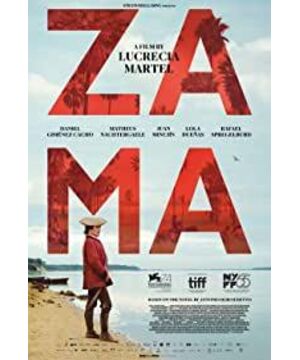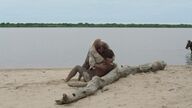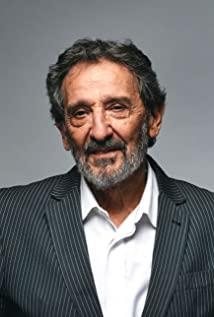'I did you no one did for me, I say no to your hope.'
// 5.1 Junior high school composition level... The writing is too rubbish...
The coconuts are worthless. ZAMA uttered these words absentmindedly, along with denying his whole life, or the meaning of universal life. Ignoring his supervisor, he broke free from them and stumbled towards the beach. When others angrily thought it was deceit, Vicuña Porto understood him. After he had experienced his ups and downs, he found that the hope of lifelong hard work was doomed/meaningless. After seeing the truth, Vicuña Porto gave up his lurking longing for coconut for several months, so he gave up further inquiries about ZAMA, let it go——ZAMA finally gained a kind of freedom after giving up hope
However, this freedom is cruel, he cut off Zama's hands. You must sacrifice something for freedom, here you have to bet your life. Whether it’s bleeding and drying on the beach, or survive all over, freedom is heavy.
His officer believed so religiously, saying at the last moment of his life,'I have a plan, His Majesty will...'. How can people believe that glory so easily, the old ZAMA is also on the road for this glory. Capture Vicuña Porto, receive the King’s award, and transfer back to his wife and children. However, the most ridiculous thing is that this mission takes Vicuña Porto to capture Vicuña Porto. Like all other unreasonable royal demands, it is absurd and doomed to fail on the executor. What did he do wrong.
He has never understood this land. He knew nothing about Vicuña Porto, nothing about local women, nothing about the waitresses talking quietly, about the tall coconut trees in the bright oil painting, the silent old woman in the musty hotel, who died young. The divine boy, these silent, but powerful spirits of the original life, he could not understand and could not step into. In response, he used his unjust right to fight against these inaccessible darkness with violence in the name of justice, and he has never encountered resistance. But when the same injustice found him, he was also powerless. Like K, who has been unable to step into the castle for all his life, he is only a persecutor in the huge royal bureaucracy. In the face of native, he was a colonist and an enforcer, but he was controlled by the colonial system. Eventually, he was targeted because of his identity as an "enforcer," and even cut off his hands.
"His loneliness is cruel." This film interestingly shows that a middle-aged man who happens to have some rights is facing the failure of power, the failure of family, courtship, his loneliness, and deep disappointment. Reflects philosophical rationality rather than personal emotions. The isolation of his identity, the arbitrary abuse of violence, and the obvious gesture of ingratiating, prevented me from substituting emotions. But this may be the case for a lonely tyrant, who doesn't want emotional closeness. Therefore, when the local governor said'His Majesty will only consider this until second time...', he felt his overwhelming "loss of emotion". A personal failure is abstracted into an ordinary, uncharacterized person in the face of the system or destiny, working so hard to hope to a state of exhaustion. In this way, the film abstracts failure, justice, and repetitive fatigue through the "distance" method, and creates a sense of mystery and surrealism through the ambiguity of the image itself, thus creating the strangeness, alienation, and abstraction like "Castle". Thoughtfulness, the atmosphere in which this bizarre novel excels.
After the second brush, I was still overwhelmed by this kind of powerless mystery and hopelessness. I can only speak my life...Do I want to live
View more about Zama reviews











